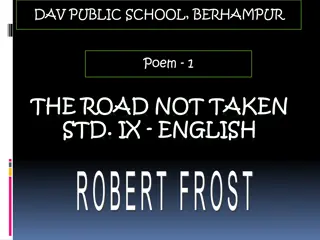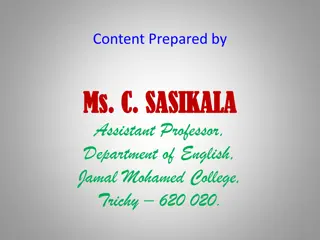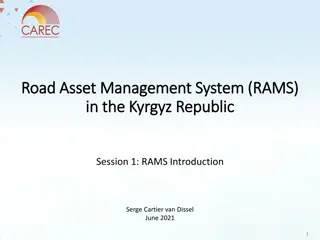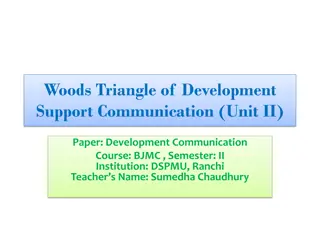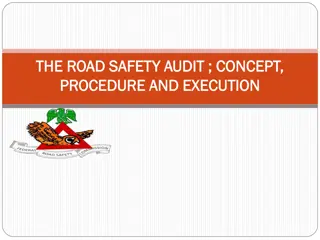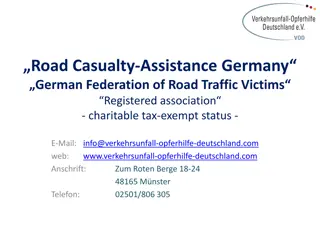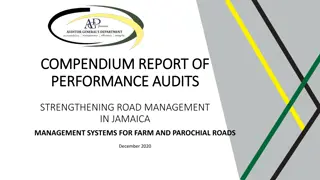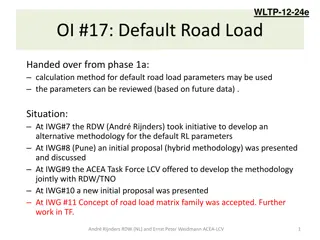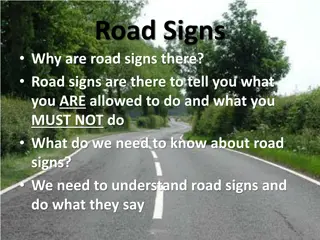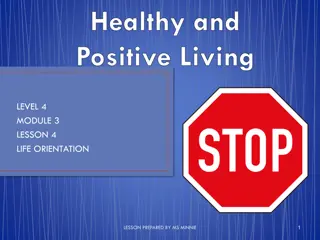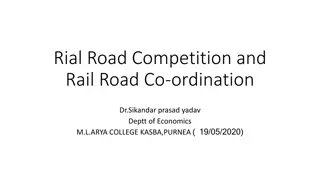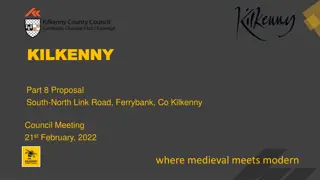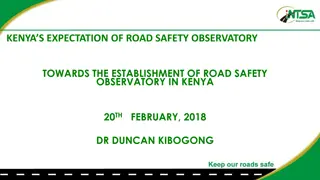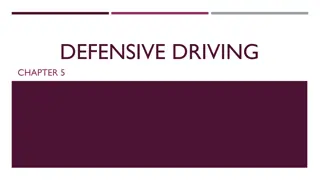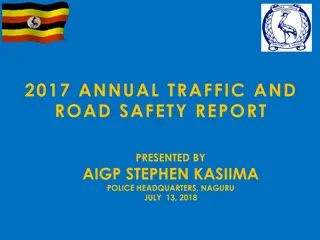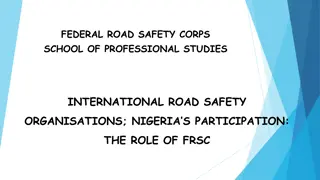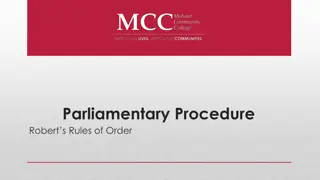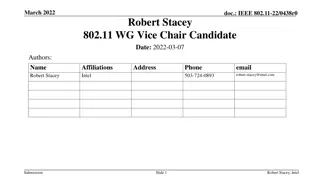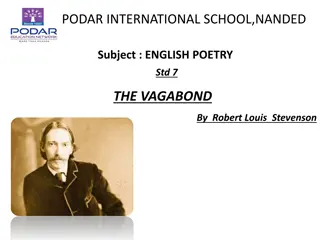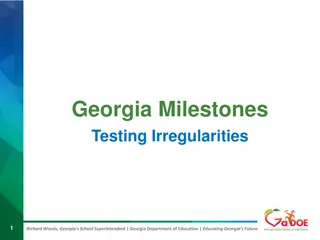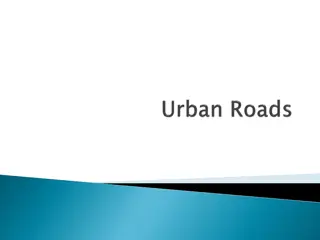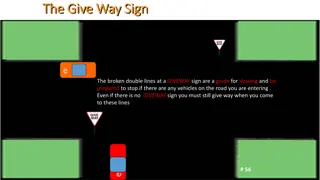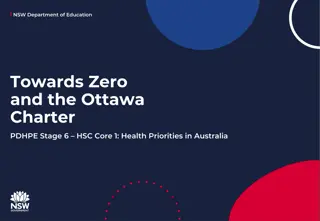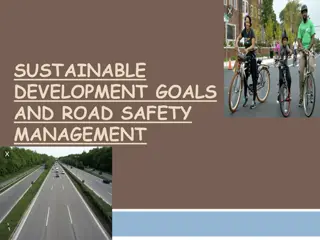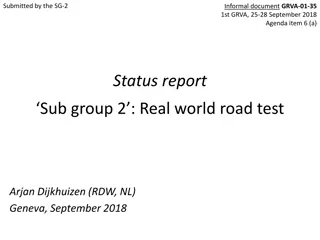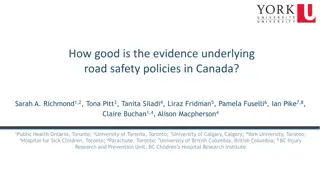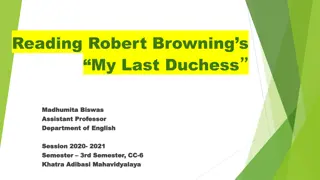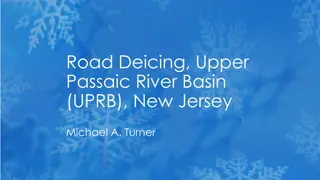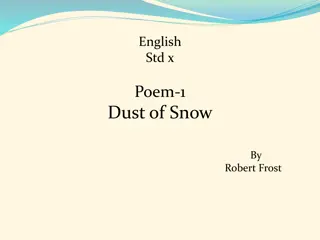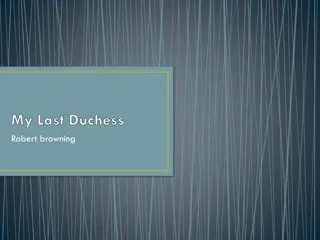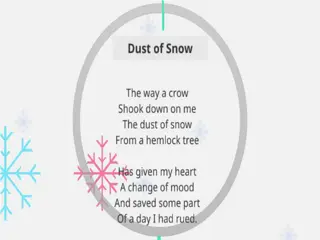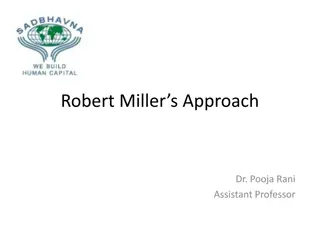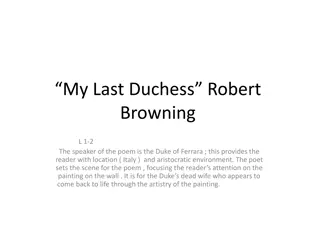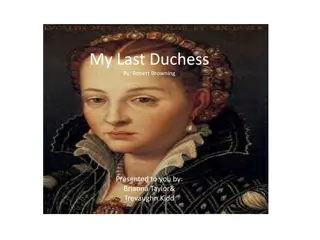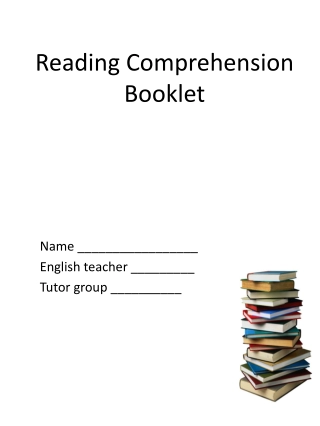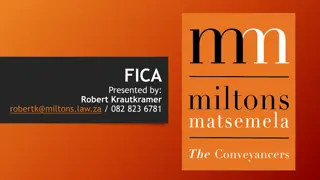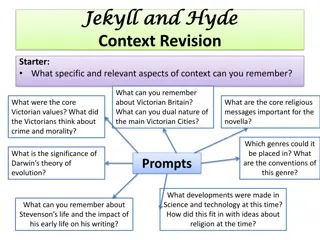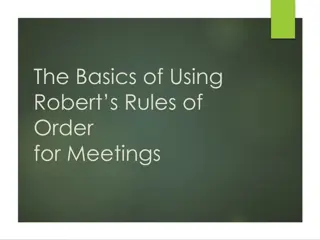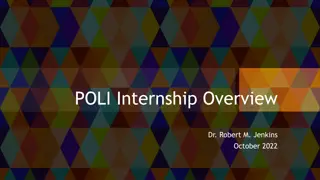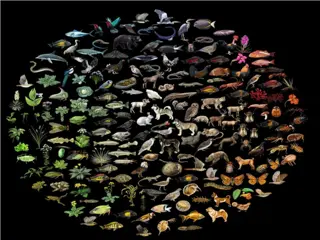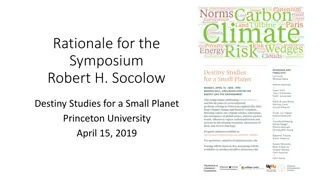Decisions in the Woods: Analysis of Robert Frost's "The Road Not Taken
Exploring Robert Frost's iconic poem "The Road Not Taken" which delves into themes of choices, regrets, and the paths we choose in life. Frost's symbolic use of two roads in a wood captures the essence of decision-making and the consequences that follow. The speaker's contemplation between diverging paths reflects the complexities of choices and the uncertainty of their outcomes. Through vivid imagery and introspective narration, Frost invites readers to reflect on their own journeys and the roads taken and not taken in life.
Download Presentation

Please find below an Image/Link to download the presentation.
The content on the website is provided AS IS for your information and personal use only. It may not be sold, licensed, or shared on other websites without obtaining consent from the author. Download presentation by click this link. If you encounter any issues during the download, it is possible that the publisher has removed the file from their server.
E N D
Presentation Transcript
The Road The Road Not NotTaken Taken By By Robert RobertFrost Frost
About the Poet Robert Lee Frost (March 26, 1874 January 29, 1963) was an American poet. His work was initially published in England before it was published in America. He is highly regarded for his realistic depictions of rural life and his command of American colloquial speech. Frost was honored frequently during his lifetime, receiving four Pulitzer Prizes for Poetry. He became one of America's rare public literary figures, almost an artistic institution. He was awarded the Congressional Gold Medal in 1960 for his poetical works.
PoemsTitle The road is the symbol of the choice made by us in life. Many times, we regret the choice we make but what is done once cannot be undone. Man regrets for what he has denied himself in life , rather than what he has chosen. Hence, the poet has given his poem the title The Road Not Taken . The word "road" not only means "way", it also means "journey" or a "stage of journey". Here "road" does not signify any ordinary road, but functions a metaphor of a vital decision in our life.
Summary Of The Poem This poem talks about the choices one has to make in life and their consequences. One day while walking in a wooded area full of trees, the poet comes to a place where he has to decide which road he should take. He starts debating over the choices as he realizes he cannot walk on both. However he decides to take the second path with the intention of travelling on the first some other time in future
Subject & Themes Choice Independence
The two roads represent a choice in life this is a metaphor as the paths should not be seen literally diverged means split ordivided he regrets not being able to make both choices - as one traveller we cannot dothis Two roads diverged in a yellow wood, And sorry I could not travel both And be one traveler, long I stood And looked down one as far as I could To where it bent in the undergrowth; represents the thought process needed to make the choice. The poem rhymes: abaab this is a lyrical, traditional poem unlike others in theanthology
Summary of the first stanza The speaker describes his position. He has been out for walking in the woods and comes in between the diversion of two roads, he stands there looking as far down each one as he can see. He would like to try out both, but doubts he could do that, so therefore he continues to look down the roads for a long time trying to make his decision about which road to take.
sees both choices as havingequal merit pros and cons Then took the other, as just as fair, And having perhaps the better claim, Because it was grassy and wanted wear; Though as for that the passing there Had worn them really about the same, the narrator choosesthe path that was grassier, hence less people had walked it in the past. Keep remembering thisis all a metaphor for the choices one has to make in life after thinking about it he declares them worn about the same he contradicts himself showing us the difficulty of the decision and his hesitancy
Summary of the second stanza He looked down the first one to where it bend in the undergrowth , and then the second one , and he decided to take the other path, because it seemed to have less traveled than the first. But then he goes on to say that they actually were very similarly worn. The second one that he took seems less traveled but as he thinks about it, he realizes that they were really about the same . Not exactly the same but only about the same .
looking back, he realises that no one had chosen either path that day both were covered with leaves no step had trodden black And both that morning equally lay In leaves no step had trodden black. Oh, I kept the first for anotherday! Yet knowing how way leads on to way, I doubted if I should ever come back. exclamation of regret emphasises the importance of the choice by making a choice, your life changes and you are never able to make things exactly as they were in the past. A bit like the butterflyeffect. Even at the time of making the choice, he doubted if [he] should ever come back this gives a real sense of stepping into the unknown
Summary of the third stanza The third stanza continues with the cogitation about the possible differences between the two road. He had noticed that the leaves were both fresh fallen on them both and had not been walked on, but then again claims that maybe he would come back and also walk the first one sometimes, but he doubted he would be able to, because in life one thing leads to another and time is short.
he looks to the future he cannot be certain that his choice was the right one I shall be telling this with a sigh Somewhere ages and ages hence: Two roads diverged in a wood, and I I took the one less traveled by, And that has made all the difference. repetition of opening poem is circular. This is Frost telling the same story again in the future the difference - you can interpret this as you wish but it is important that you do think about its meaning. Frost himself says this final line does not mean he made the right choice, rather that he had to make the choice and it changed everything
Summary of the fourth stanza In this poem the word difference is taken in a positive way. But there is nothing in the poem that suggests that this difference signals a positive outcome. The speaker could not offer such information, because he has not lived the difference yet. The other word that leads non-discerning readers astray is the word sigh. By taking difference to mean a positive difference, they think that the sigh is one of nostalgic relief; however, a sigh can also mean regret. There is the oh, dear kind of sigh, but also the what a relief kind of sigh. Which one is it? We do not know. If it is the relief sigh, then the difference means the speaker is glad he took the road he did; if it is the regret sigh, then the difference would not be good, and the speaker would be sighing in regret.
Links to other poems Warning probably works the best as it is also about a risky choice. In Digging , Seamus Heaney chooses to become a poet rather than follow in his father s footsteps.
Hints and Tips This is a lovely poem but relating it to the others in the anthology might be difficult. If you do choose to write about it, you must be clear that the poem is a metaphor for the choices in life; if you do NOT understand this ask me or someone else what it means because an examiner will not be impressed if you do not show an understanding ofthis. Try to imagine a choice. For example, a girl who becomes pregnant and whether or not she should have an abortion, or the decision to stay on at school/college or go straight into work. Try to relate the choice to the poem and you should find it easier. This analysis is excellent: http://poetry.suite101.com/article.cfm/robert_frost_s_tricky_p if you want any more info.
Example Questions 1. The Road Not Taken is a poem about the decisions you can make in life. Choose another poem where the narrator has made a choice or is thinking about making a choice. How do they compare? 2. The two roads in this poem are a metaphor. Find another metaphor in a different poem and explain how these uses of figurative language illustrate the poems themes.


